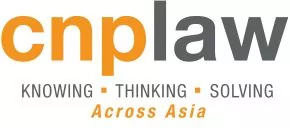By Bill Jamieson and Amit Dhume
- On 27 April 2010 the Monetary Authority of Singapore ("MAS") issued a consultation paper ("CP") in relation to enhancements to the regulatory regime for fund management companies in Singapore. The CP includes matters that affect Capital Markets Services Licence holders for fund management as well as fund managers and other financial intermediaries operating under the relevant exemptions under the Securities and Futures Act (Cap. 289) of Singapore. As of date, the process is at the consultancy stage, and these changes have not been implemented.
- This note focuses on the effect of the proposed changes on "exempt fund managers" ("EFMs") in Singapore, who manage funds on behalf of not more than 30 "qualified investors".
- New EFMs who currently do not operate in Singapore will be required to satisfy MAS that they will be able to comply with these proposed changes, when they intimate to MAS that they propose to operate in Singapore.
- Existing EFMs may want to prepare themselves for the changes, as they will need to comply with the changes once they are incorporated in legislation and following a transition period of 6 months, which is said to give them a grace period estimated to be at least 18 months altogether.
-
Based on the proposed changes in the CP, EFMs may need to comply with the following:
- Restricted to serving not more than 30 qualified investors, of which not more than 15 can be funds.
- AUM of less than S$250m. If AUM exceed S$250m, the fund manager will need to apply for a licence.
- A minimum of two (2) directors, one of whom must be an executive director residing in Singapore. Nominee directors (such as external legal advisors or corporate secretaries) will not count towards satisfying the minimum of two directors. To fulfill the fit and proper criteria, directors should be able to demonstrate their competency by having experience in the financial services industry, including managerial experience or experience in a supervisory capacity.
- A minimum of two (2) full-time representatives (who can be a director of the fund management company ("FMC")), who reside in Singapore, each of whom should have a minimum of five (5) years of relevant experience.
- Demonstration of commitment - a demonstration of commitment may be made in various ways, such as the CEO and executive directors of the FMC having a majority shareholding of the FMC, or the fund managers placing seed money into the fund.
- Base Capital of S$250,000.
- Professional Indemnity Insurance - strongly encouraged, but not mandatory.
- FMCs are required to place their customers' monies and assets with a custodian which is licensed, registered or authorised (to perform the custodial function) in the jurisdiction where the monies or assets are being held.
- FMCs must ensure independence, or the adequate segregation of duties, particularly in the performance of functions such as valuation/fund accounting, acting as fund registrar and client reporting (e.g. the sending of monthly account statements).
-
FMCs should provide adequate disclosure to their investors on issues such as:
- Custodial and fund administration Arrangements
- Compliance arrangements
- Any (potential) conflicts of interest
- PII arrangements.
- The proposed changes in the CP seek to increase the standard of the fund management industry in Singapore. Industry watchers point out that these measures will help to promote Singapore's image as a fund management hub of repute.
- Please click on the links below to refer to the relevant documents: Consultation paper dated 27 April 2010 on Review of the Regulatory Regime for Fund Management Companies and Exempt Financial Intermediaries.
- A copy of the CP is available on the website of MAS.
If you wish to have further information on this update or wish to discuss how it may potentially have an impact on your business, please feel free to contact please feel free to contact Bill Jamieson or Elaine Beh.
The content of this article is intended to provide a general guide to the subject matter. Specialist advice should be sought about your specific circumstances.
